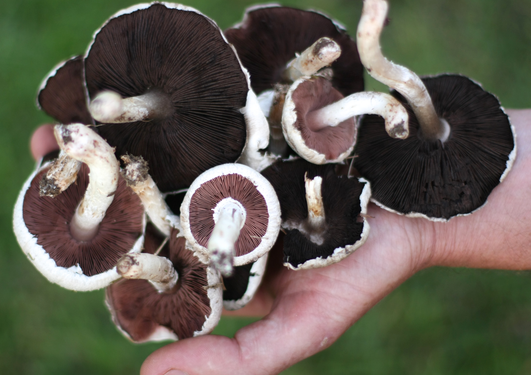Affected by seasons: spirits in relation to seasons
“I find winters really depressing, just don’t know what to do with myself,” a high school student shared with me.

Main content
Winter time on the Coromandel, usually from the beginning of May to the beginning of September, can be experienced as dull and empty. There is a lot of rain, the days are short and due to the absence of insulation in most houses, it feels cold. Also, socially there is little distraction and many people start their day in the dark and return home when it’s dark again.
What is known as seasonal affective disorder (SAD), or more commonly called seasonal depression or winter blues, is a condition that probably affects more people than we think. In New Zealand, no official statistics exist, but when talking to people it becomes clear that most people experience the ‘winter blues’ in some form or the other. Symptoms appear to range from a generally depressed mood to eating disorders coupled with weight fluctuation, interrupted sleep patterns, irritability, loss of sex drive, and withdrawal from social situations.
A research participant who works at a local pharmacy finds that “prescriptions for antidepressants just skyrocket”. Short days and not enough sunshine can also affect us indirectly when someone who is close to us is feeling down. For example, a research participant revealed that she is generally “a bit afraid” of winter because she just knows that that is the time when her mother is “not in a good space”.
Personally, I too find the winter months on the Coromandel challenging. Fun and happiness are harder to come by. I also feel cold a lot. We go through a lot of firewood at home and I also depend on warm sheepskin slippers. A hot water bottle is a regular night-time companion.
One could be led to believe that everyone's spirits sink during the winter months. After all, we are all subject to our body’s circadian rhythms. But we find that people can feel quite differently about winter. Other research participants told me that they look forward to winter. For some it is a time filled with activity that they cannot do at other times of the year; certain sports events, for example, only take place in winter. Winter becomes a time of fun, adrenaline and competition. A keen hunter participating in the project exclaimed that he loves “going bush” in winter: “It’s the time of the year when you see pig tracks and your [hunting] dogs don’t cook in the heat of the day. In summer it’s just too dry to see tracks, it’s no fun”.
Why is it then that emotions and well-being in the context of seasons are experienced so diversely? I am not a psychologist or in any way trained in the medical profession, but the stories told by research participants bring three key external factors to the fore: 1) light and temperature, 2) social engagement and context, and 3) a sense of purpose. Together, these factors influence our spirits and how we experience certain times of the year.
It strikes me that, when conducting seasonally related interviews, participants almost always describe how they feel at certain times of the year. Everyone seems to have a ‘favourite’ time of the year. For example, a teacher interviewed from Te Puru School, explained how much he loves the autumn time: “The temperatures are just perfect, the sea is warm, and the sun feels so nice on the skin. I wish I could experience this time of the year without knowing that winter is just around the corner”.
A different participant explained how she loves summer and the heat because “you can just wear light clothes, go swimming, and the long days just make you happy”. However, again, not everyone feels the same way. Others “suffer” in the heat and even go as far as saying they “hate” summer. “It’s so hot that you can’t sleep, and everything is sticky. I find it hard to cool down. It’s much easier to be comfortable in winter than it is in summer. Don’t get me wrong, I do like going to the beach and stuff but that kind of gets boring after a while. I just find that there is so much more to do in winter”.


